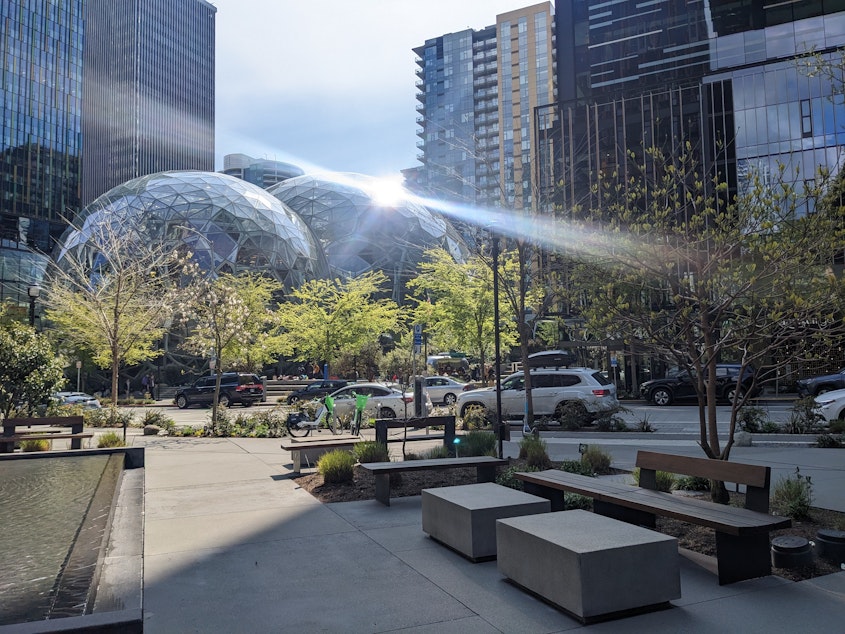Why Amazon could be served another FTC lawsuit

Amazon is heading into yet another legal battle with federal regulators and could face another lawsuit this September.
The online retail and cloud computing giant reportedly didn't budge during final talks with the Federal Trade Commission ahead of an expected lawsuit from the agency. That cleared one of the final hurdles for the FTC to file an antitrust case against Amazon, possibly later this month.
Amazon reporter Dana Mattioli broke the story for the Wall Street Journal– she calls it a “seminal moment” for federal regulators, who are pursuing a more aggressive agenda of antitrust cases across the board.
Mattioli also has a new book coming out next year titled “The Everything War: Amazon's Ruthless Quest to Own The World and Remake Corporate Power.”
According to published reports, the FTC is not approaching this case as an argument about consumers and the prices we pay for Amazon goods. Instead, the agency reportedly is building a case around Amazon’s vertical integration — it’s ownership of the Amazon marketplace and its logistics services — and that structure’s effects on third-party sellers.
"From what we've been able to intuit, a big part of this will be Amazon's marketplace of third party sellers and its Prime program," Mattioli said.
Sponsored
The contention with Prime is two-fold.
Prime offers free one-to-two-day shipping to customers, which the FTC contends may be anti-competitive, because it requires merchants to use Amazon's logistics and shipping program to be a part of Prime.
Mattioli says Prime's other features, like free Amazon streaming and video, may also be an issue.
"The FTC has been looking into whether that creates this like sticky web that gets customers to come in and they stay in Amazon's ecosystem, and they don't leave and they spend their money with Amazon and across different properties."
But this lawsuit won't just be about Amazon Prime.
Sponsored
There are also contentions about how Amazon uses data from third-party sellers, and that Amazon forces third-party sellers to lower their prices. Which, Mattioli notes, is anti-competitive.
While this lawsuit is in the works, Amazon also recently announced that it would be tacking on an additional 2% fee for sellers that don't use their logistics services.
Mattioli says that while it's an interesting decision, it's not unusual for the company.
"In 2015, on average, Amazon took just a 19% fee globally from their sellers," Mattioli said. "That includes the commission and shipping and advertising fees and whatnot. Cut to last year, marketplace polls found that Amazon pocketed nearly 52% of the revenue from each item a third-party merchant sells on Amazon."
These fees, Mattioli notes, will also be part of the FTC's investigation. Assuming the lawsuit is filed, the case will likely last for years.
Sponsored
How the general public will view this case is up in the air. Both progressive Democrats and conservative Republicans have said they believe Amazon is too big, and needs to be broken up.
"But at the same point, you have to remember people really do love Amazon Prime," Mattioli said. "They were a company that a lot of people relied on during the darkest days of the pandemic. So there's some of that built into this as well."





